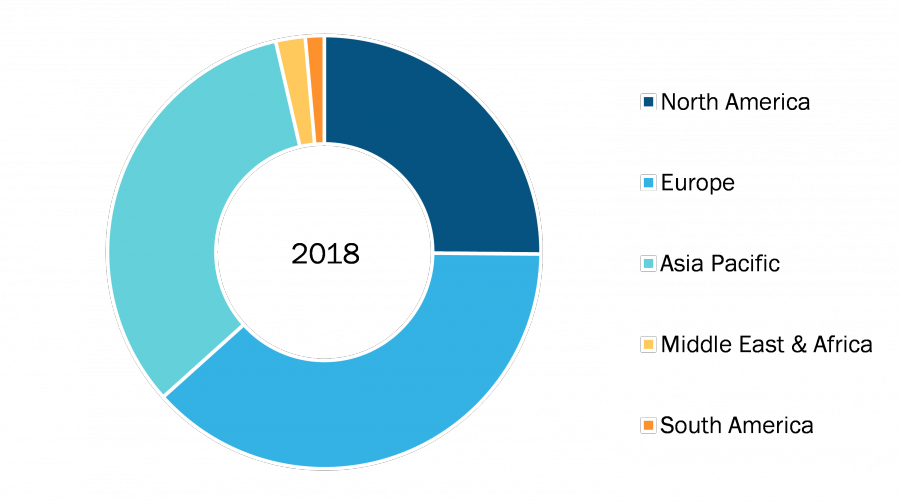
Fuel Card Market Opportunity Assessment, Market Challenges, Key vendor analysis, Vendor landscape by 2027
Fuel card market is estimated to account US$ 6.29 Bn in 2018 and is expected to grow at a CAGR of 5.8% during the forecast period 2019 – 2027.
PUNE, MAHARASHTRA, INDIA, December 1, 2019 /EINPresswire.com/ -- The North America region commands a significant market share in terms of revenue generated for fuel card and it is estimated that it will continue to dominate the market share through-out the forecast period. Universal cards are the most convenient fuel card type, the providers of these cards usually partner with several fuel companies and offer great flexibility. Certain fuel card companies merely operate in some countries or regions while others may only be accepted at particular fuel stations. Users with less options in their region may need to be cautious regarding limiting them to just a few fuel stations.
Fuel cards enable enhanced tracking of fleet expenses and efficiency of the fleet by tracking real-time mileage and fuel usage by vehicles in a fleet. Fleet operators use fuel cards for costs such as truck maintenance, truck repairs, fuel, truck cleaning, and replacement vehicle rental, among others. Data captured by a fuel card include odometer reading, fuel grades, fuel product, and quantity of fuel, vehicle ID, driver ID and tax information along with transaction details such as time, location, spend amount and date support rich repowering for fleet managers. All of these enhanced data permits richer reporting, which can be used by fleet operators to identify problem zones such as fraudulent transaction by truck drivers or truck with lower fuel efficiency. Thus, fuel cards provide complete insight into vehicle operating cost and driver behavior that provides fleet managers with a complete oversight and trends required to analyze shortcomings in the fleet. Above mentioned metrics are expected to drive the adoption of fuel card by fleet operators around the world over the forecast period from 2019 – 2027.
Get sample PDF Copy @ https://www.theinsightpartners.com/sample/TIPRE00003099/
Some of the key players operating in global fuel card market are BP P.L.C., Exxon Mobil Corporation, Fleetcor Technologies, Inc., Royal Dutch Shell plc, U.S. Bank, Wex Inc., DKV, World Fuel Services, Edenerd, and Radius Payment Solutions and among others.
Certain fuel card providers have started implanting the telematics interface as well as strong reporting abilities as usual product offering to enhance fleet management efficiency. This comprises of GPS data integration along with purchase data with a purpose to track fleet or driver performance. It further helps in determining whether the vehicle is refueling at an appropriate location. Moreover, integrating fuel cards with telematics helps in receiving accurate Miles/Gallon reports for each vehicle. The recorded data enables the business or users to effortlessly identify any inadequacies or pinpoint drivers who may need further training. Companies such as WEX Inc. and Business Fuel Cards Pty Ltd among others have already started offering the telematics integration with fuel cards in Australia however, the trend is further expected to gain traction in the near future owing to rising adoption of telematics in vehicles.
The fuel card market by component is segmented into branded fuel cards, merchant fuel cards, and universal fuel cards. Fuel cards are usually used by SMEs and large business to track their fuel consumption and make convenient make cashless payment. Such cards are most common for the business or organizations which deals into transportation and fleet management. Different companies operating in the space offer different card type. These cards apart from refilling fuels are used for several other purpose. Fuel card by issuer can be broadly categories independent or branded.
The global fuel card market based on application has been segmented into fuel refill, parking, vehicle service, toll charge, and others. A fuel card enables users’ as well as business owners to manage and control fuel and maintenance expenses. They are generally used as a payment card for fuels at petrol stations. Moreover, these cards can also be used for payment of other vehicle services such as repairs, maintenance as well as roadside assistance. Owing to broad reporting, several fuel cards enable users to obtain real time reports, thus, helping them to stay up-to-date of all business expenses along with managing vehicle taxes.
Strategic Insights
Some of the market initiatives were observed to be most adopted strategy in the global fuel card market. Few of the recent market initiatives are listed below:
2019: Edenred Capital Partners invests in innovative businesses with high growth potential in areas related to Edenred's activities. The aim is to enhance the Group's ecosystem by initiating valuable synergies with the companies backed.
2018: Edenred, the world leader in transactional solutions for companies, employees and merchants, today announced the signing of an agreement to acquire 80% of the share capital of The Right Fuelcard Company (TRFC) group, the number four fuel card program manager in the United Kingdom.
Purchase This Report @ https://www.theinsightpartners.com/buy/TIPRE00003099/
The report segments the global fuel card market as follows:
Global Fuel Card Market – By Type
Branded Fuel Cards
Merchant Branded Fuel Cards
Universal Fuel Cards
Global Fuel Card Market – By Application
Fuel Refill
Parking
Vehicle Service
Toll Charge
Others
Sameer Joshi
The Insight Partners
+91 9666111581
email us here
EIN Presswire does not exercise editorial control over third-party content provided, uploaded, published, or distributed by users of EIN Presswire. We are a distributor, not a publisher, of 3rd party content. Such content may contain the views, opinions, statements, offers, and other material of the respective users, suppliers, participants, or authors.


